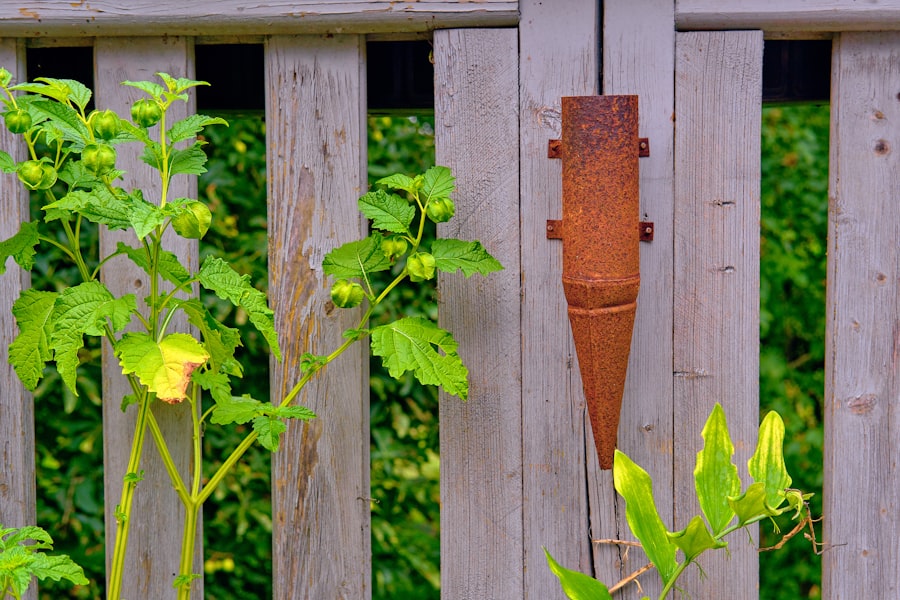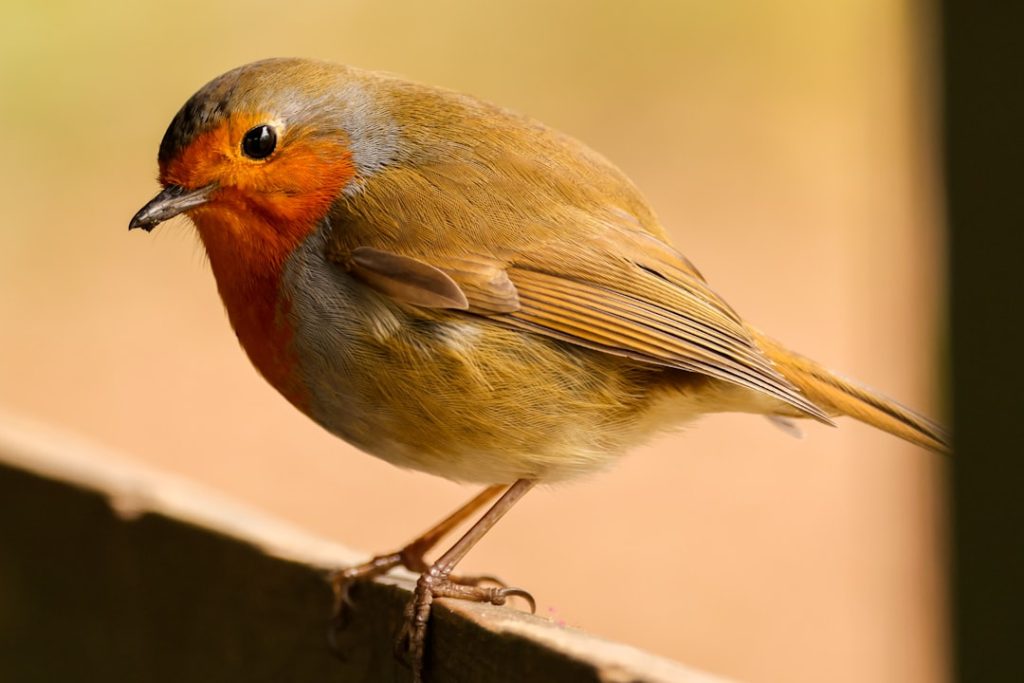Chickens exhibit natural curiosity and social behavior, with a strong instinct for foraging. They are easily startled by sudden movements or loud noises. Understanding these behavioral traits is essential for effectively deterring chickens from specific areas.
By recognizing their natural tendencies, one can anticipate their actions and implement appropriate strategies to keep them away from undesired locations. Chickens are creatures of habit and will repeatedly return to areas where they have previously found food or shelter. Once they identify a particular location as a food source, they will continue to frequent it.
This behavior necessitates proactive measures to prevent initial access to these areas. Chickens are also highly adaptable and intelligent, requiring consistent reinforcement of deterrent methods to ensure long-term effectiveness in keeping them away from unwanted spaces.
Table of Contents
- 1 Creating Physical Barriers
- 2 Using Natural Deterrents
- 3 Implementing Scare Tactics
- 4 Providing Alternative Areas for Foraging
- 5 Consistent Training and Reinforcement
- 6 Seeking Professional Help if Necessary
- 7 FAQs
- 7.1 What are some effective ways to keep chickens out of the flower bed?
- 7.2 Why is it important to keep chickens out of the flower bed?
- 7.3 Are there any plants that can help repel chickens from the flower bed?
- 7.4 What are some natural deterrents that can be used to keep chickens out of the flower bed?
- 7.5 How can positive reinforcement be used to train chickens to stay out of the flower bed?
Key Takeaways
- Chickens are naturally curious and will explore their surroundings
- Physical barriers such as fences and netting can prevent chickens from accessing certain areas
- Natural deterrents like citrus peels and strong-smelling herbs can discourage chickens from specific areas
- Scare tactics like motion-activated sprinklers or noise-making devices can startle chickens and deter them from unwanted areas
- Providing alternative foraging areas with treats and toys can redirect chickens’ attention away from restricted areas
- Consistent training and reinforcement of boundaries is essential for long-term success
- Seeking professional help from a veterinarian or animal behaviorist may be necessary for persistent chicken behavior issues
Creating Physical Barriers
Installing Fences and Netting
One effective way to deter chickens from accessing certain areas is by creating physical barriers. This can include installing fences, netting, or other structures to block off access to gardens, flower beds, or other sensitive areas. It is important to ensure that these barriers are secure and properly installed to prevent chickens from finding ways to bypass them.
Maintenance and Inspection
Additionally, it is important to regularly inspect and maintain these barriers to address any potential weak points or damage.
Using Chicken Wire or Mesh
Another physical barrier that can be effective in deterring chickens is the use of chicken wire or mesh. This can be placed over plants or areas where chickens tend to forage, preventing them from accessing the area while still allowing sunlight and water to reach the plants.
Limiting Foraging Areas
By creating physical barriers, you can effectively limit the areas where chickens can forage and reduce the likelihood of damage to sensitive vegetation.
Using Natural Deterrents

In addition to physical barriers, natural deterrents can also be effective in deterring chickens from certain areas. One common natural deterrent is the use of predator decoys, such as fake owls or hawks. These decoys can create the illusion of a potential threat to chickens, causing them to avoid the area altogether.
It is important to regularly move these decoys around to prevent chickens from becoming accustomed to their presence. Another natural deterrent is the use of strong-smelling plants or herbs, such as lavender or mint, which can be planted around sensitive areas to repel chickens. Additionally, sprinkling cayenne pepper or garlic powder around plants can also deter chickens due to their strong scent and taste.
By using natural deterrents, you can effectively discourage chickens from accessing certain areas without causing them harm.
Implementing Scare Tactics
Scare tactics can be an effective short-term solution for deterring chickens from certain areas. This can include using noise-making devices, such as wind chimes or motion-activated alarms, to startle chickens and discourage them from foraging in specific locations. It is important to regularly change the location of these devices to prevent chickens from becoming accustomed to them.
Another scare tactic that can be effective is the use of visual deterrents, such as reflective tape or shiny objects, which can create a sense of unease for chickens and deter them from accessing certain areas. Additionally, hanging old CDs or aluminum foil strips in the area can create flashes of light and movement that will startle the chickens. By implementing scare tactics, you can disrupt the chickens’ comfort and routine, making them less likely to return to the targeted areas.
Providing Alternative Areas for Foraging
One proactive approach to deterring chickens from certain areas is by providing alternative areas for foraging. This can include setting up designated feeding stations with a variety of grains and seeds to attract chickens away from sensitive areas. By providing an enticing alternative, you can redirect the chickens’ natural foraging instincts and reduce their interest in accessing off-limits areas.
Another strategy is to create designated dust bathing areas for chickens, which can help satisfy their natural behavior while keeping them away from sensitive plants or gardens. By providing alternative areas for foraging and dust bathing, you can effectively manage the chickens’ behavior and reduce their impact on specific locations.
Consistent Training and Reinforcement

Long-term Success through Consistency
By consistently implementing deterrent strategies and reinforcing their effectiveness, you can ensure long-term success in managing chicken behavior.
Teaching Chickens to Respond to Cues
Training can also involve teaching chickens to respond to specific cues or commands that signal when they should avoid certain areas. This can be achieved through positive reinforcement training, such as using treats or rewards to encourage desired behaviors.
Shaping Chicken Behavior
By consistently training and reinforcing deterrent methods, you can effectively shape the chickens’ behavior and reduce their impact on sensitive areas.
Seeking Professional Help if Necessary
If efforts to deter chickens from certain areas prove ineffective, it may be necessary to seek professional help. This can involve consulting with a poultry expert or animal behaviorist who can provide guidance on effective deterrent methods and behavior management strategies. Additionally, professional help may be necessary if there are underlying issues contributing to the chickens’ behavior, such as inadequate housing or nutrition.
In some cases, it may be necessary to enlist the help of a professional pest control service to address persistent chicken-related issues. These professionals can provide specialized expertise and resources to effectively manage chicken behavior and mitigate their impact on specific areas. By seeking professional help when necessary, you can ensure that you are taking appropriate measures to address chicken-related challenges effectively.
If you’re looking for more tips on keeping chickens, you might want to check out this article on choosing the right flooring for your chicken coop. It’s important to create a comfortable and clean environment for your chickens, and the type of flooring you use can make a big difference.
FAQs
What are some effective ways to keep chickens out of the flower bed?
Some effective ways to keep chickens out of the flower bed include using physical barriers such as fences or chicken wire, using natural deterrents like citrus peels or coffee grounds, and training the chickens to stay away using positive reinforcement.
Why is it important to keep chickens out of the flower bed?
It is important to keep chickens out of the flower bed to protect the plants from being trampled, scratched, or eaten by the chickens. Additionally, chicken droppings can be harmful to certain plants and flowers.
Are there any plants that can help repel chickens from the flower bed?
Yes, there are certain plants that can help repel chickens from the flower bed, such as marigolds, lavender, and rosemary. These plants have strong scents that chickens tend to avoid.
What are some natural deterrents that can be used to keep chickens out of the flower bed?
Some natural deterrents that can be used to keep chickens out of the flower bed include citrus peels, coffee grounds, cayenne pepper, and vinegar. These items have strong scents or tastes that chickens typically dislike.
How can positive reinforcement be used to train chickens to stay out of the flower bed?
Positive reinforcement can be used to train chickens to stay out of the flower bed by rewarding them with treats or praise when they stay away from the area. This can help them associate staying out of the flower bed with a positive outcome.
Meet Walter, the feathered-friend fanatic of Florida! Nestled in the sunshine state, Walter struts through life with his feathered companions, clucking his way to happiness. With a coop that’s fancier than a five-star hotel, he’s the Don Juan of the chicken world. When he’s not teaching his hens to do the cha-cha, you’ll find him in a heated debate with his prized rooster, Sir Clucks-a-Lot. Walter’s poultry passion is no yolk; he’s the sunny-side-up guy you never knew you needed in your flock of friends!







